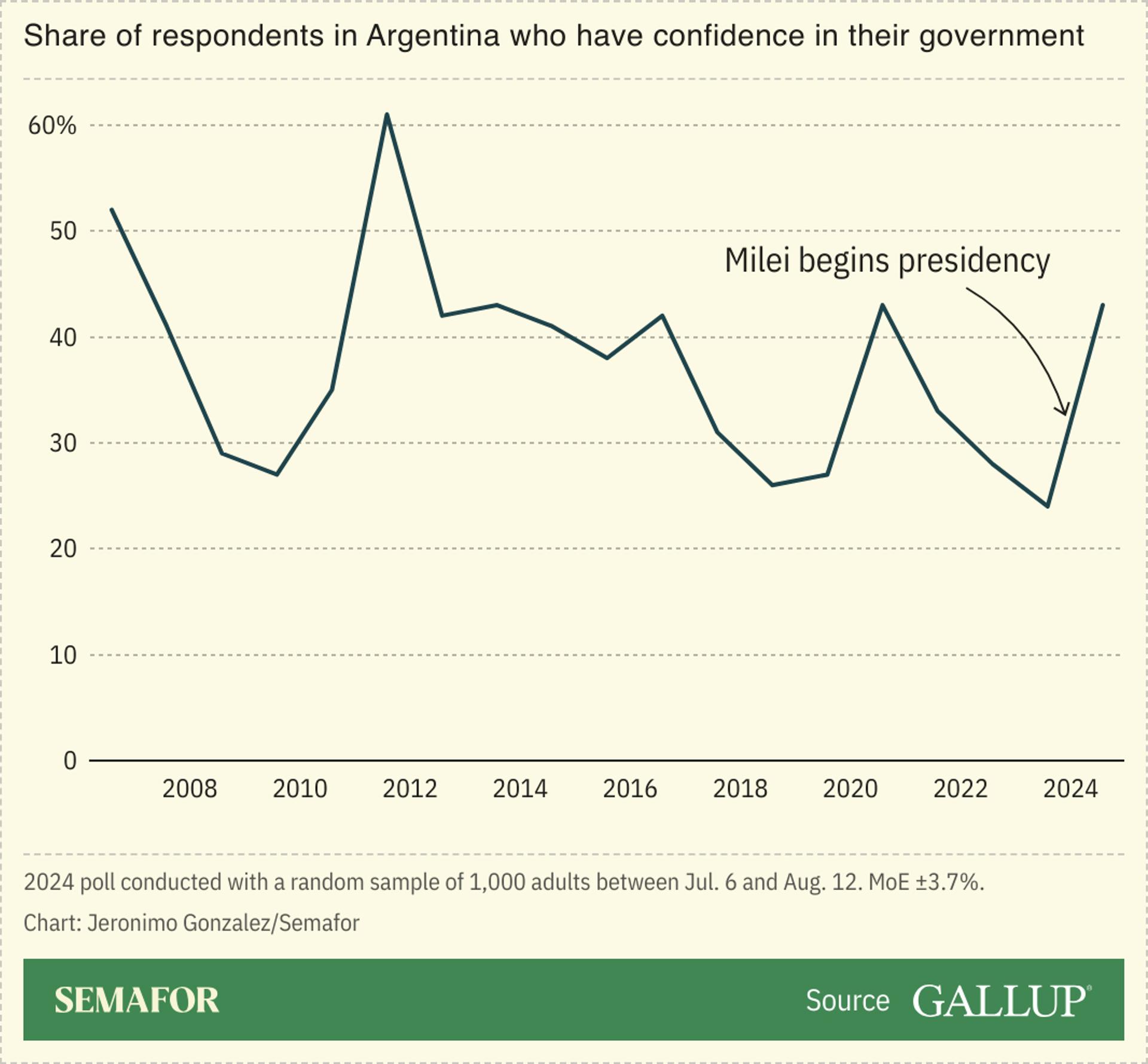The News
A year into his presidency, Javier Milei has reined in Argentina’s soaring inflation rates and slashed a yawning budget deficit, but challenges remain.
The self-described “anarcho-capitalist” has driven down monthly inflation to less than 3% from 25% — and despite the “painful” nature of some of his austerity measures, Milei remains extremely popular with Argentines, with a personal approval rating of 48%.
Still, analysts warned that with poverty rates surpassing 50%, Argentines could rapidly sour on the populist president unless Milei changes tack.
SIGNALS
Argentines are more optimistic about the economy as inflation drops
Since Javier Milei took office, Argentines are more optimistic about the economy after his first year as president than they have been for almost a decade, new Gallup polling showed. Some 41% of survey respondents said they felt their city’s economy is improving, a rise from 25% in 2023. Meanwhile, the number of Argentines who feel like their standard of living has improved was found to be 53% — the first time most respondents have done so since 2015, Gallup reported. Having largely tamed the country’s rampant inflation, Milei “can boast a softer-than-expected landing and some stability, which a year ago seemed out of reach,” a columnist argued in The Wall Street Journal.

Milei’s first-year moves could become a ‘serious political liability’
Javier Milei enjoys widespread popular approval: Elected on a wave of anger toward Argentina’s traditional political parties, he has been given both time and leeway to make radical changes, Reuters wrote. “I have a job description,” Milei told The Economist. “I was asked to lower inflation and end insecurity. And I am ending inflation and we are annihilating insecurity.” But his policies have also triggered a deep recession, which could turn into a “serious political liability” as Argentines’ face increased unemployment and poverty —voters’ top two concerns — a columnist argued in Foreign Affairs.
Milei’s pragmatic turn could ultimately erode support
While promising a form of “chainsaw” austerity, Javier Milei has become more pragmatic in his economic and political approach in office. He has softened his protectionist rhetoric toward key trading partners like China, El País wrote, and made deals with opposition lawmakers he derides, a Latin America analyst noted in Americas Quarterly, describing his contempt for the government as “infinite.” Argentina’s voters “didn’t put me here to sort out ideological battles; they put me here to sort out people’s problems,” Milei told the Financial Times. The question remains however whether Milei’s slight turn toward the center will erode his “radical outsider” status, and in turn, cost him popular support, the outlet’s Latin America editor wrote.

